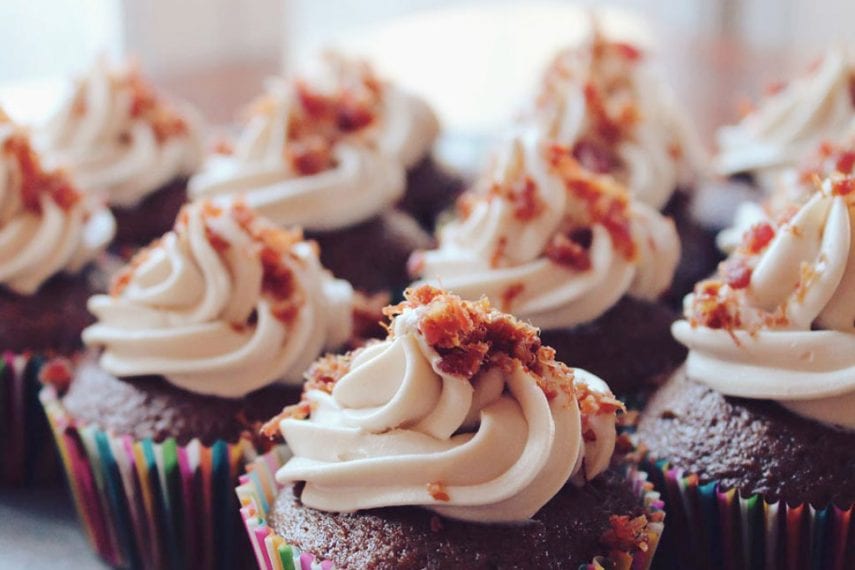Overcoming Shame: Understanding the Relationship Between Binge Eating and Anxiety Disorders

Sarah is now 37, and she still acutely remembers the first time she experienced a serious anxious episode. “I was 12 and about to attend my first school dance. I had what was probably a typical level of nervousness about such an occasion on the days leading up to the event, but as I was getting ready to go I was completely overcome by fear. I became so anxious that I vomited.”
As her anxiety grew with time and became more free-floating, she reached for comfort where she could find it: food. In the absence of real, healthy tools to cope with her overwhelming distress, she used food to medicate the pain away and find temporary escape in the process of eating. “I hated myself for doing it, but I couldn’t stop.”
The Relationship Between Anxiety and Binge Eating
Binge eating is the most prevalent eating disorder in the United States, far surpassing more highly visible disorders like anorexia nervosa and bulimia. Currently, it is estimated that 2.8% of the adult population suffers from binge eating. For many, like Sarah, bingeing emerges in adolescence in response to developing anxiety disorders, which have one of the earliest ages of onset of all psychiatric illnesses. Research confirms this; multiple studies on adolescent girls and college-aged women have found that experiences of anxiety predicted binge eating behaviors. In part, this may be due to the fact that food is accessible at a time when young people have limited internal and external resources for coping with serious psychological pain. However, both binge eating and anxiety can begin at any point in life, either organically or in response to a specific trigger such as trauma. Binge eating also affects roughly equal proportions of men and women; approximately 40% of those who binge are men.
The relationship between anxiety and binge eating is, on its surface, one of the most understandable connections between a mental health disorder and a co-occurring eating disorder. Many people engage in emotional eating to some extent over the course of their lives; the phenomenon is so common that images of women eating ice cream following break-ups is a cultural punchline and everyone knows what “eating your feelings” means. However, binge eating exists on the extreme end of emotional eating, having crossed the line of benign self-soothing to physical, behavioral, and emotional dysfunction. What may begin as a way to control psychological pain quickly becomes defined by a lack of control more than any other factor. As Dr. Dori Winchell says, “It’s not so much the amount or what you eat, but what it feels like. Is the food in control? After the first bite, can you stop?”
Stigma, Shame, and Suffering
In addition to the very real somatic risks of overeating, using binging as a way to suppress anxious experiences can keep you locked in a cycle of psychological suffering that can both aggravate your anxiety and keep you from seeking help. In a culture that places extreme value on thinness and controlled eating habits, people who engage in binge eating can experience profound shame and isolation, adding new sources of anxiety that coalesce with existing distress to push them further into psychiatric crisis. As one suffer says, “Binge eating is seen as such a shameful and gluttonous behavior that I fear talking to anyone about it and because I’ve begun to put on weight I’m just isolating myself more, which feeds my social anxiety.” Greater recognition of the relationships between anxiety and binge eating may serve to break down the internalized stigma experienced by many and ease the process of seeking help.
Exploring the Link
While the medical community has firmly established significant links between anxiety and binge eating behavior, what is less clear is the exact mechanism by which this link develops. However, some experts believe that eating disorders and anxiety may share a common biological basis, positing that if you suffer from one, you are inherently predisposed to the other. Anxiety may also induce increased stress hormones that encourage reward-seeking behavior. Binge eating itself can engage the brain’s reward circuitry by producing highly pleasurable neurochemical release in the form of dopamine, particularly when the foods consumed are high in fat and sugar. Nick English of Greatist explains how this can kick off a cycle of bingeing:
Once the brain secretes dopamine during binges, they can become like a physical addiction—we binge more and more because we crave the rush of chemicals. Similarly, low levels of dopamine and serotonin (another happy chemical) can lead to compulsive behavior (like bingeing) and depression.
The result is a kind of addictive drive in which you seek to re-experience the pleasure of bingeing again and again despite its emotionally and physically destructive effects.
Anxiety is the Most Common Mental Disorder
Recovery is Easier than You Might Think
Toward Healing Mind and Body
One benefit of the shared biological underpinnings of anxiety and binge eating is the fact that some medications can be used to treat both simultaneously. Specifically, researchers have found that SSRIs such as Zoloft and Luvox, which work to increase serotonin production in the brain, can provide significant therapeutic benefits. Dr. Sharon Alger-Mayer, a clinician specializing in eating disorder treatment at Albany Medical College, says:
Since the 1970s, people have recognized that the same substances that control mood also control appetite. If there’s a low level of serotonin, one may feel depressed but also crave high-carbohydrate, binge-type foods. Consuming high-carbohydrate foods results in increased production of brain serotonin. That’s why using a drug to increase serotonin levels might suppress the desire to binge.
However, medication is only the first step. Untangling the complex tapestry of anxiety and binge eating often requires specialized care in a residential treatment facility where you have the time, space, and support to examine the roots of your distress and establish healthy coping mechanisms to relieve suffering. At Bridges to Recovery, we create personalized treatment plans designed to address your unique, multiple needs and put you on the path to lasting emotional and behavioral wellness. By combining carefully considered psychotropic medications with evidence-based psychotherapeutic and holistic practices, you can not only experience relief from acute symptoms, but break your isolation, re-establish a healthy relationship with food, and engage in profound self-growth.
Bridges to Recovery offers comprehensive residential treatment for people living with anxiety disorders and co-occurring eating disorders. Contact us for more information about how we can help you or your loved one start on the path to healing.






